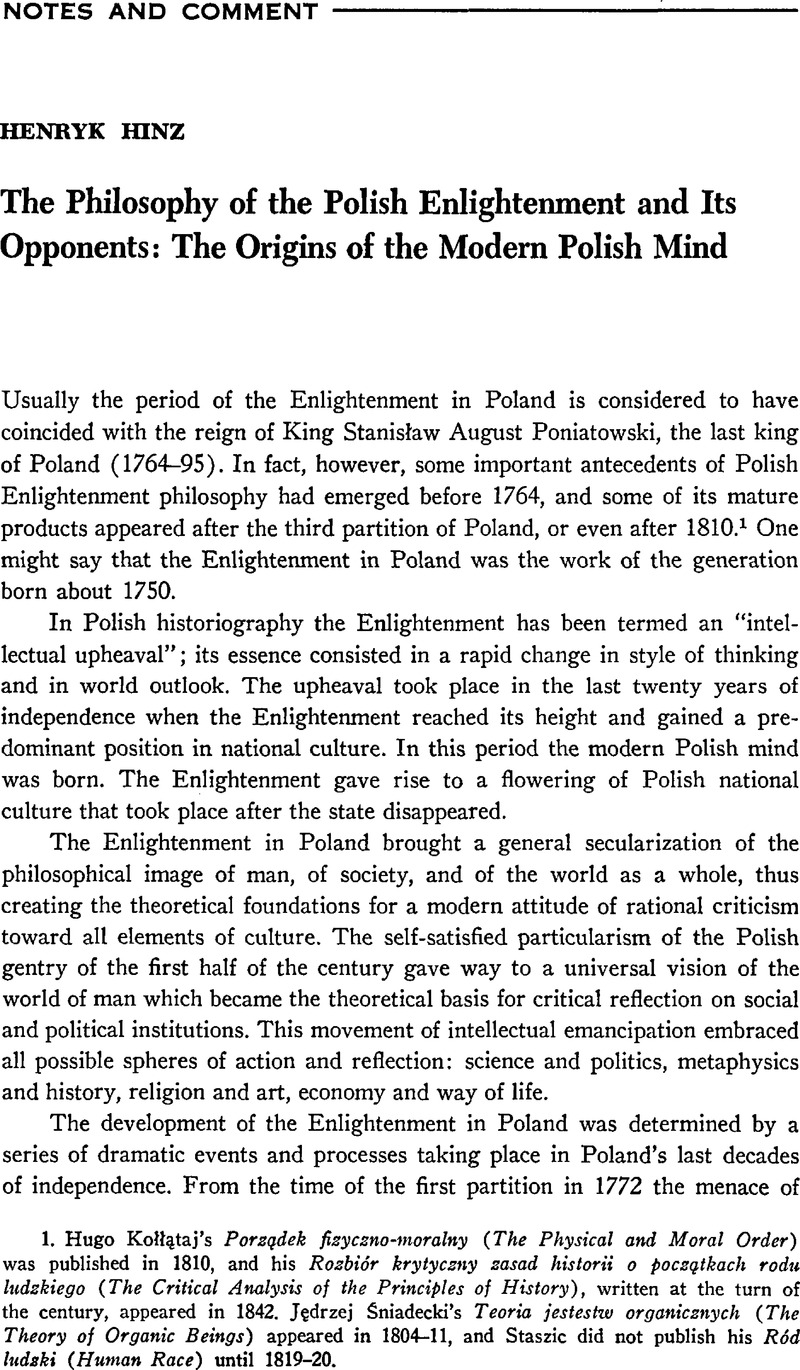No CrossRef data available.
Article contents
The Philosophy of the Polish Enlightenment and Its Opponents: The Origins of the Modern Polish Mind
Published online by Cambridge University Press: 27 January 2017
Abstract

- Type
- Notes and Comment
- Information
- Copyright
- Copyright © Association for Slavic, East European, and Eurasian Studies. 1971
References
1. Hugo Kołłątaj's PorzÃdek fisycsno-moralny (The Physical and Moral Order) was published in 1810, and his Rozbićr krytycsny sasad historii o pocsątkach rodu ludskiego (The Critical Analysis of the Principles of History), written at the turn of the century, appeared in 1842. Jędrzej Śniadecki's Teoria jestestw organicsnych (The Theory of Organic Beings) appeared in 1804-11, and Staszic did not publish his Ród ludski (Human Race) until 1819-20.
2. Of the numerous periodicals that appeared later, one should mention Zabaivy Prsyjemne i Pożyteczne ﹛Amusements Enjoyable and Useful) published in 1770-77. The periodicals originally assumed a moderately critical attitude toward ideas of the French Enlightenment. This was particularly visible in the publications directed against deism and natural religion.
3. I mean the movement connected with the so-called code of A. Zamoyski.
4. These influences are to be seen in the writings of F. S. Jezierski as early as the period of the Four-Year Diet. It was not until after the victory of the Targowica Confederation that the patriotic emigration, when preparing for armed uprising, established direct relations with the Gironde and later with the Jacobin dictatorship and the post- Thermidorian governments.
5. Among French writers perhaps Jean Paul Marat alone might be believed to associate a condemnation of the Bar Confederation with a complete refusal of all justifications to its enlightened oppressors, his opinion being expressed in an otherwise poor roman du coeur entitled Les Aventures du Comte Potowski, written in 1771 in London.
6. Jean, Fabre, Lumières et romantisme (Paris, 1963), p. 140.Google Scholar
7. Palmer, R. R., The Age of the Democratic Revolution, 2 vols. (Princeton, 1959), 1 : 449.Google Scholar


